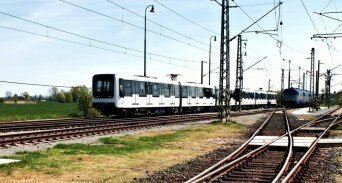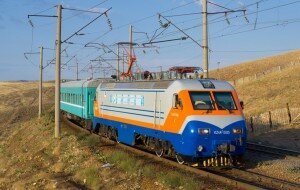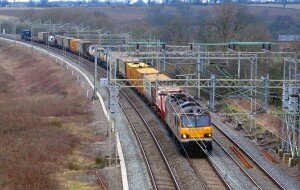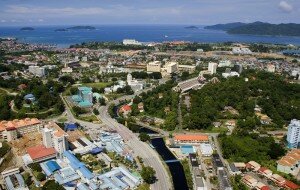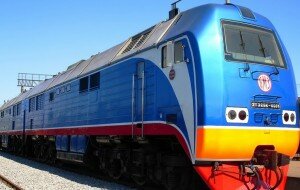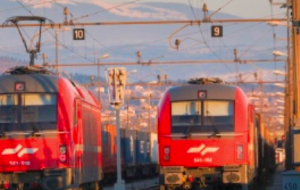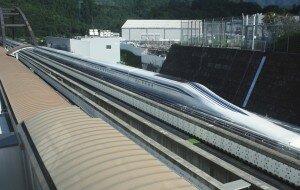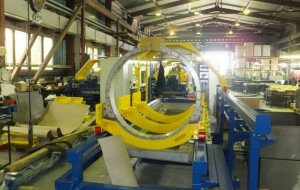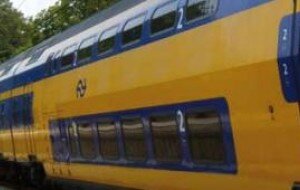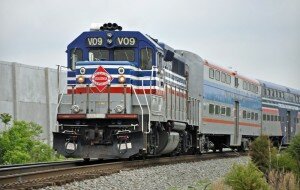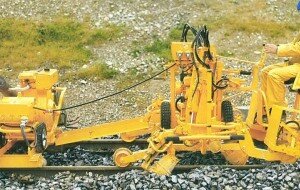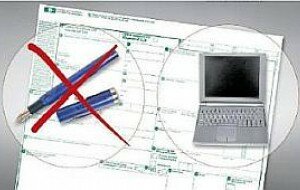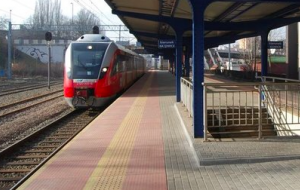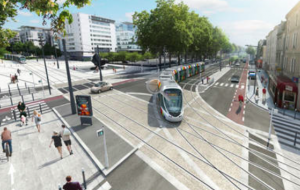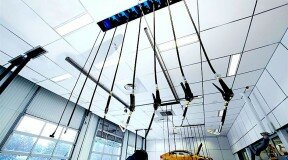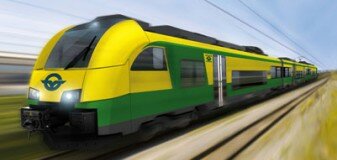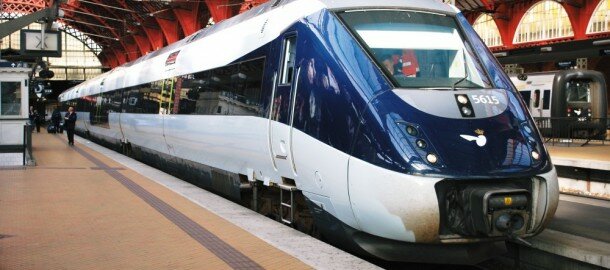 DSB Ansaldo-Breda IC-4 4-car HST dmu No.5615. Wikiphoto: Credit: Hugh Llewelyn from Bristol, UK
DSB Ansaldo-Breda IC-4 4-car HST dmu No.5615. Wikiphoto: Credit: Hugh Llewelyn from Bristol, UK
DSB report on IC4 released
Published: Wed, 2015-01-14 13:40The ever-lasting story of Danish State Railways' heavily-delayed AnsaldoBreda IC4 DMUs took new turn end of last year with the publication of an autonomous report on the measures required for full fleet deployment.
The assessment, which focused solely on the IC4 sets, was carried out by Prose, Switzerland, in cooperation with Swiss Federal Railways (SBB) and Swiss engineering consultancy Enotrac between late August and the start of December. The assessment team carried out 47 group interviews, meetings and inspection tours and studied around 400 documents.
DSB ordered 82 four-car IC4 and 23 IC2 two-car sets from the Italian manufacturer in 2000 and the first trains were due to enter service in 2003, but the trains have been beset by technical problems and introduction has been heavily delayed.
By the end of October the IC4 fleet had covered just 10.8 million-km in service, 30% of it this year, and four of the trains still have 0km on the clock. 80% of the total fleet mileage has been covered by just 31 trains and 30 trains have covered less than 1% of the total. DSB's current availability requirement is for 32 sets twice a day.
According to DSB's current deployment plan, only 74 of the 82 sets will now be required for service and five of the trains will be cannibalized for spare parts. So far 67 sets have been approved for operation, but around half of these are held in an operational reserve pool.
The operation of trains in multiple is currently banned and maximum speed is restricted to 169km/h, and 140km/h during the leaf-fall season in October and November, due to issues with the braking system, even though the trains are certified for operation at up to 180km/h.
The restriction was applied in November 2011 after an IC4 overran a danger signal at Marslev on the Copenhagen - Odense line in an area not known for poor railhead conditions. Braking percentages were subsequently reduced from 170% to 130%, which applies the ATC emergency brake earlier, and brakes on one of the axles have been isolated to ensure the ATC always takes a safe, accurate position from the reference axle. This limits the operation of the IC4s and is a barrier to the full implementation of the deployment plan.
Brakes have not been the only problem. Earlier this year DSB commissioned an investigation by DB Systemtechnik following the discovery of axlebox cracks, one of the contributing factors in the decision to launch the Prose study. A previous report by Atkins noted that the coupling system is extremely prone to faults and DSB has developed modifications to reduce its complexity.
The report also recommends establishing resource management for unexpected critical technical issues. A task force will look at power pack configuration and cross-functional teams will be set up to improve the reporting of failure messages.
Prose says it has found signs of weaknesses in the current power pack arrangement and axlebox housings that could potentially lead to major design changes.
Source: DSB






